-
 bitcoin
bitcoin $87959.907984 USD
1.34% -
 ethereum
ethereum $2920.497338 USD
3.04% -
 tether
tether $0.999775 USD
0.00% -
 xrp
xrp $2.237324 USD
8.12% -
 bnb
bnb $860.243768 USD
0.90% -
 solana
solana $138.089498 USD
5.43% -
 usd-coin
usd-coin $0.999807 USD
0.01% -
 tron
tron $0.272801 USD
-1.53% -
 dogecoin
dogecoin $0.150904 USD
2.96% -
 cardano
cardano $0.421635 USD
1.97% -
 hyperliquid
hyperliquid $32.152445 USD
2.23% -
 bitcoin-cash
bitcoin-cash $533.301069 USD
-1.94% -
 chainlink
chainlink $12.953417 USD
2.68% -
 unus-sed-leo
unus-sed-leo $9.535951 USD
0.73% -
 zcash
zcash $521.483386 USD
-2.87%
What is an NFT and how does it relate to cryptocurrency?
NFTs, unique digital assets built on blockchain technology, are bought and sold using cryptocurrencies like Ethereum, unlike fungible cryptocurrencies like Bitcoin. Their value is driven by market demand and scarcity, with applications extending beyond digital art to supply chain management and digital identity.
Feb 28, 2025 at 03:12 pm
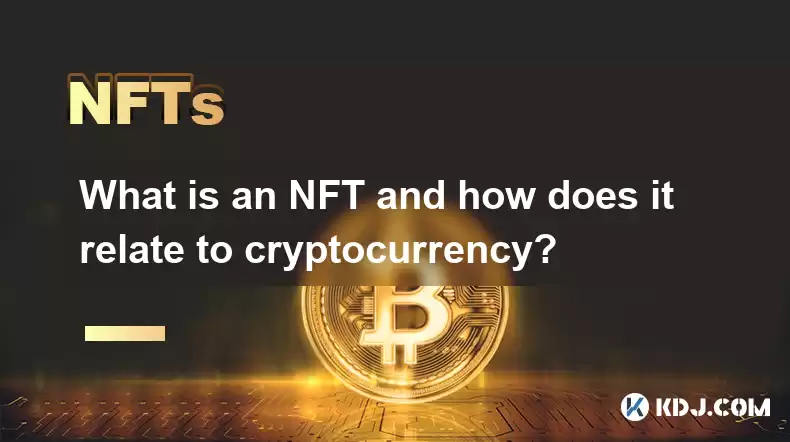
What is an NFT and how does it relate to Cryptocurrency?
Key Points:- NFTs (Non-Fungible Tokens) are unique, digital assets representing ownership of a specific item. They are fundamentally different from cryptocurrencies like Bitcoin or Ethereum, which are fungible (interchangeable).
- NFTs are built on blockchain technology, the same technology underpinning cryptocurrencies. This provides transparency, security, and immutability to NFT ownership records.
- The relationship between NFTs and cryptocurrency is primarily transactional. Cryptocurrencies, particularly Ethereum and others, are commonly used to buy, sell, and trade NFTs on marketplaces.
- NFTs encompass a wide range of digital and physical assets, including art, collectibles, in-game items, virtual real estate, and more. The value of an NFT is determined by market demand and perceived scarcity.
- The technology behind NFTs has implications beyond the art world, including potential applications in supply chain management, digital identity verification, and intellectual property rights management.
- Defining Non-Fungibility: The core concept differentiating NFTs from cryptocurrencies lies in the term "non-fungible." Fungibility means interchangeability. One Bitcoin is essentially identical to another Bitcoin. You can exchange one for another without any difference in value. NFTs, however, are unique. Each NFT possesses distinct characteristics and metadata, making it impossible to substitute one for another. Think of it like this: you can trade one dollar bill for another, but you can't trade the Mona Lisa for another painting, even if it's a perfect copy. The Mona Lisa's unique history and provenance make it irreplaceable. This uniqueness is what gives NFTs their value.
- The Blockchain's Role: NFTs exist on a blockchain, a distributed, immutable ledger. This means that the ownership and transaction history of an NFT are transparent, secure, and verifiable by anyone. This eliminates the risk of counterfeiting or fraudulent transactions. The blockchain records not only the ownership of the NFT but also its entire history, from its creation to each subsequent sale. This provenance is crucial for establishing the authenticity and value of an NFT. The most commonly used blockchain for NFTs is Ethereum, though other blockchains are gaining traction. The specific blockchain used influences factors such as transaction fees and speed. The inherent security of the blockchain technology underpins the trust and integrity of the NFT marketplace.
- Metadata and Representation: An NFT is not just a digital file; it's a token representing ownership of that file. The file itself—an image, video, audio, or even a piece of virtual real estate—is linked to the NFT through metadata. This metadata contains information about the asset, such as its name, description, creator, and any other relevant details. This metadata is stored on the blockchain, providing a permanent record of the NFT's attributes. The digital file itself might be hosted elsewhere, but the NFT on the blockchain serves as irrefutable proof of ownership. The separation of the NFT from the underlying asset is an important distinction, allowing for greater flexibility and potential applications.
- Utility Beyond Collectibles: While NFTs are often associated with digital art and collectibles, their potential applications extend far beyond the realm of aesthetics. For example, NFTs can be used to represent ownership of in-game items, providing verifiable proof of ownership and enabling interoperability between different games. They can also be used in supply chain management to track the movement of goods, ensuring authenticity and preventing counterfeiting. Furthermore, NFTs can play a role in digital identity verification, providing secure and verifiable proof of identity. The possibilities are vast, and as the technology matures, we can expect to see even more innovative applications emerge. These potential applications demonstrate the transformative power of NFTs beyond the current hype surrounding digital collectibles.
- Marketplaces and Trading: NFTs are bought and sold on various online marketplaces, much like traditional artworks. These marketplaces typically utilize cryptocurrencies as the medium of exchange. Ethereum is the most commonly used cryptocurrency for NFT transactions, but other cryptocurrencies are also gaining popularity. The process of buying and selling NFTs usually involves creating a digital wallet to store your cryptocurrency and NFTs, connecting your wallet to the marketplace, browsing available NFTs, and then making a purchase using your chosen cryptocurrency. The prices of NFTs can vary widely depending on factors such as the artist's reputation, the rarity of the NFT, and overall market demand. These marketplaces often incorporate features such as auctions, allowing buyers to bid on NFTs and potentially acquire them at a lower price than their asking price. The vibrant and dynamic nature of these marketplaces is a key driver of the NFT ecosystem's growth and evolution.
- Cryptocurrency as the Payment Mechanism: The most direct link between NFTs and cryptocurrencies is the use of cryptocurrencies as the primary method of payment for purchasing NFTs. Ethereum, with its robust smart contract functionality, has become the dominant cryptocurrency for NFT transactions. However, other blockchains and their associated cryptocurrencies are also gaining prominence, offering alternative options for NFT trading. The use of cryptocurrency facilitates global transactions, eliminating the need for intermediaries like banks and reducing transaction costs. The decentralized nature of cryptocurrency transactions aligns with the decentralized ethos of blockchain technology upon which NFTs are built.
- Gas Fees and Transaction Costs: One important consideration when dealing with NFTs and cryptocurrencies is the concept of "gas fees." These fees represent the computational cost of executing transactions on the blockchain. Gas fees can vary significantly depending on network congestion and the complexity of the transaction. Higher gas fees can make NFT transactions more expensive, particularly during periods of high network activity. Understanding gas fees is crucial for budgeting and planning NFT purchases and sales. The volatility of gas fees highlights the importance of monitoring network conditions before engaging in NFT transactions.
- Blockchain Interoperability: The future of NFTs may involve increased interoperability between different blockchains. This would allow NFTs created on one blockchain to be easily transferred and traded on other blockchains, enhancing liquidity and accessibility. However, achieving seamless interoperability presents significant technical challenges. The development of cross-chain bridges and protocols is crucial for unlocking the full potential of NFT interoperability. This interoperability will likely play a significant role in shaping the future landscape of the NFT ecosystem.
A: The long-term potential of NFTs is a subject of ongoing debate. While the initial hype has subsided, the underlying technology and its potential applications in various sectors beyond digital art suggest a degree of lasting impact. However, the success and longevity of NFTs will depend on factors such as regulatory clarity, technological advancements, and the continued development of use cases beyond speculation.
Q: How can I protect myself from scams in the NFT market?A: The NFT market is prone to scams. Thoroughly research projects before investing, be wary of promises of unrealistic returns, verify the authenticity of NFTs through blockchain explorers, and only use reputable marketplaces. Never share your private keys or seed phrases with anyone.
Q: What are the environmental concerns surrounding NFTs?A: The energy consumption of some blockchains, particularly Ethereum (before the merge to Proof-of-Stake), has raised environmental concerns. However, the development of more energy-efficient blockchains and the shift towards Proof-of-Stake consensus mechanisms are mitigating these issues. It's important to be aware of the environmental impact of different blockchains when choosing to buy or sell NFTs.
Q: Can I create my own NFTs?A: Yes, creating NFTs is relatively straightforward, although it requires some technical knowledge. You'll need to choose a blockchain, create your digital asset, and use tools or platforms to mint your NFT. Several platforms offer user-friendly interfaces for NFT creation.
Q: What are the legal implications of owning an NFT?A: The legal landscape surrounding NFTs is still evolving. Ownership of an NFT grants you rights to the digital asset, but the extent of these rights can be complex and vary depending on the specific terms and conditions. It's important to understand the legal implications before investing in NFTs.
Disclaimer:info@kdj.com
The information provided is not trading advice. kdj.com does not assume any responsibility for any investments made based on the information provided in this article. Cryptocurrencies are highly volatile and it is highly recommended that you invest with caution after thorough research!
If you believe that the content used on this website infringes your copyright, please contact us immediately (info@kdj.com) and we will delete it promptly.
- Bitcoin Price Plummets Amid ETF Outflows and Fed Fears: A Market Reset?
- 2026-02-06 09:40:02
- Bitcoin Core Resignation Sparks Speculation Over Epstein Funding Links, But Facts Tell a Different Story
- 2026-02-06 06:30:01
- Shiba Inu Coin Price Prediction: Navigating the Hype and Reality
- 2026-02-06 07:20:02
- Epstein's Ghost, Satoshi's Shadow: Bitcoin's Hijacked Narrative Takes Center Stage
- 2026-02-06 07:05:01
- Altcoin Season Heats Up: APEMARS Presale Emerges as a Key Player in the Crypto Rush
- 2026-02-06 07:15:01
- Bitcoin's Boardroom Breakthrough: Reshaping B2B Payments and Corporate Balance Sheets
- 2026-02-06 07:15:01
Related knowledge
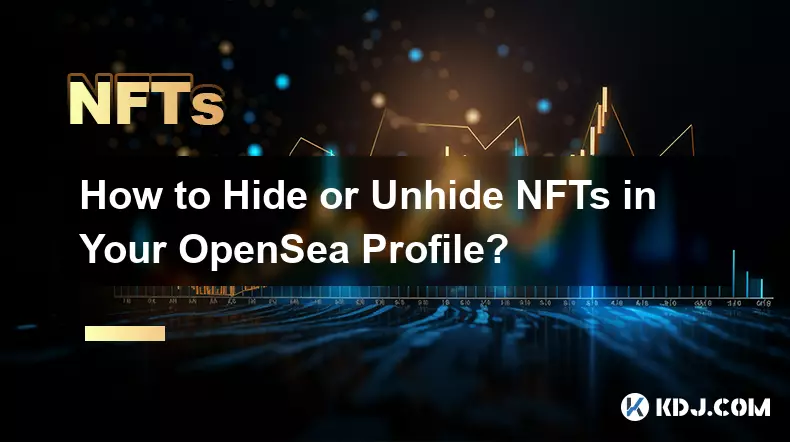
How to Hide or Unhide NFTs in Your OpenSea Profile?
Feb 05,2026 at 12:39pm
Understanding NFT Visibility on OpenSea1. OpenSea allows users to manage the visibility of their NFTs directly from their profile page without requiri...

How to Use LooksRare to Earn Trading Rewards?
Feb 05,2026 at 03:39pm
Understanding LooksRare's Reward Mechanism1. LooksRare distributes LOOKS tokens to users who actively trade on the platform, not just hold assets. 2. ...
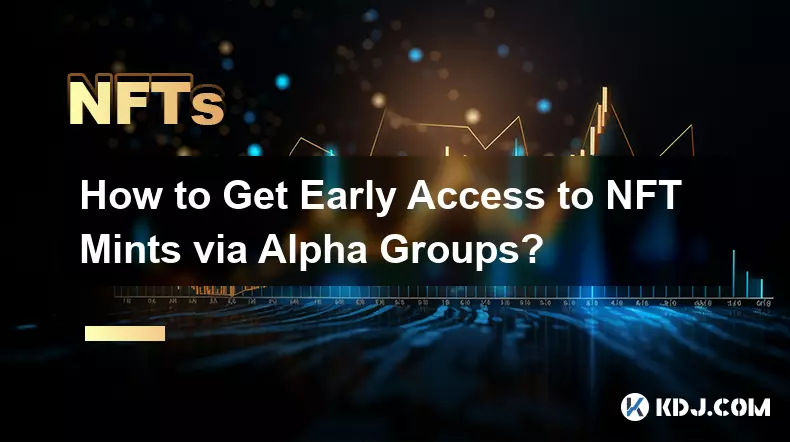
How to Get Early Access to NFT Mints via Alpha Groups?
Feb 05,2026 at 06:59am
Understanding Alpha Groups in the NFT Ecosystem1. Alpha groups are private or semi-private communities that aggregate collectors, developers, and insi...
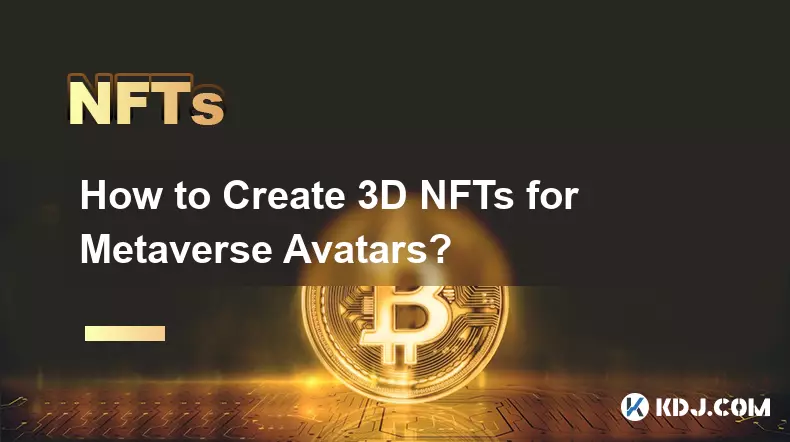
How to Create 3D NFTs for Metaverse Avatars?
Feb 05,2026 at 12:00pm
Understanding 3D NFT Fundamentals1. A 3D NFT is a non-fungible token that represents a unique three-dimensional digital asset, often used as wearable ...
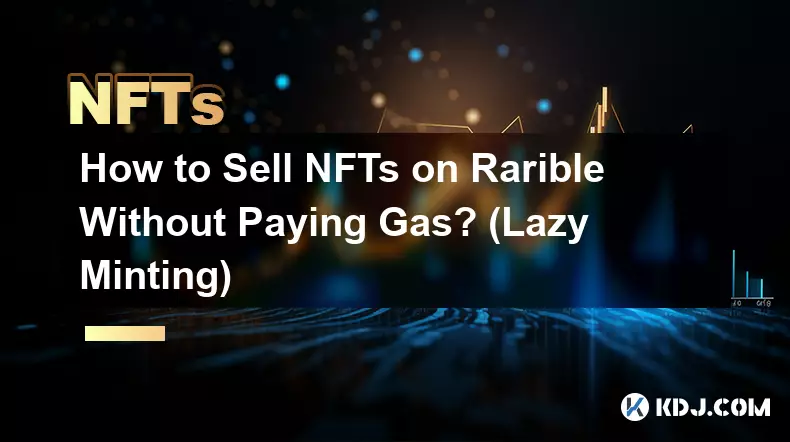
How to Sell NFTs on Rarible Without Paying Gas? (Lazy Minting)
Feb 06,2026 at 05:19am
Understanding Lazy Minting on Rarible1. Lazy minting allows creators to list NFTs for sale without deploying them to the blockchain immediately. 2. Th...
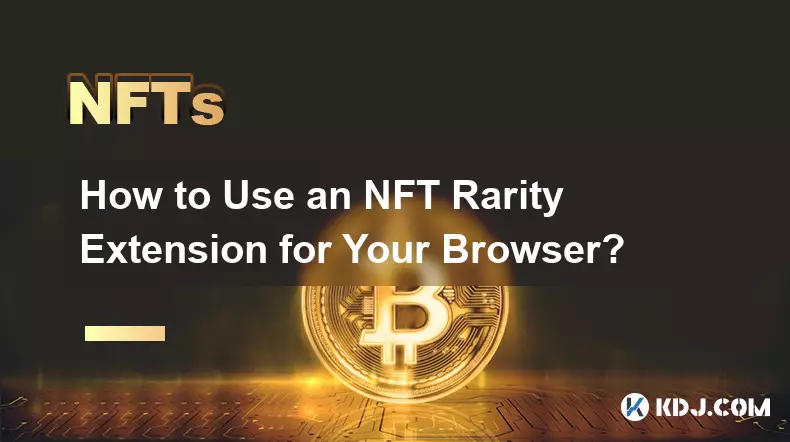
How to Use an NFT Rarity Extension for Your Browser?
Feb 05,2026 at 03:21am
Understanding NFT Rarity Extensions1. NFT rarity extensions are browser add-ons designed to display real-time rarity metrics directly on marketplace p...

How to Hide or Unhide NFTs in Your OpenSea Profile?
Feb 05,2026 at 12:39pm
Understanding NFT Visibility on OpenSea1. OpenSea allows users to manage the visibility of their NFTs directly from their profile page without requiri...

How to Use LooksRare to Earn Trading Rewards?
Feb 05,2026 at 03:39pm
Understanding LooksRare's Reward Mechanism1. LooksRare distributes LOOKS tokens to users who actively trade on the platform, not just hold assets. 2. ...

How to Get Early Access to NFT Mints via Alpha Groups?
Feb 05,2026 at 06:59am
Understanding Alpha Groups in the NFT Ecosystem1. Alpha groups are private or semi-private communities that aggregate collectors, developers, and insi...

How to Create 3D NFTs for Metaverse Avatars?
Feb 05,2026 at 12:00pm
Understanding 3D NFT Fundamentals1. A 3D NFT is a non-fungible token that represents a unique three-dimensional digital asset, often used as wearable ...

How to Sell NFTs on Rarible Without Paying Gas? (Lazy Minting)
Feb 06,2026 at 05:19am
Understanding Lazy Minting on Rarible1. Lazy minting allows creators to list NFTs for sale without deploying them to the blockchain immediately. 2. Th...

How to Use an NFT Rarity Extension for Your Browser?
Feb 05,2026 at 03:21am
Understanding NFT Rarity Extensions1. NFT rarity extensions are browser add-ons designed to display real-time rarity metrics directly on marketplace p...
See all articles























![[Geometry Dash - Power Gauntlet] Rush by DHaner (with coin) [Geometry Dash - Power Gauntlet] Rush by DHaner (with coin)](/uploads/2026/02/05/cryptocurrencies-news/videos/origin_6984a77c2dcad_image_500_375.webp)


















































